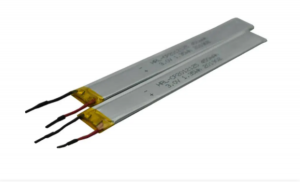Strictly speaking, lithium manganese battery is a kind of battery in the lithium battery family. Therefore, the difference between lithium manganese battery and lithium battery is difficult to define, because different types of lithium batteries have different characteristics.
Lithium manganese battery electrode reaction formula: (-) Li / LiClO4—PC+DME / MnO2 (+)
Battery negative reaction: Li → Li+ + e
Positive electrode reaction: MnO2 + Li+ + e→MnO2 (Li+)
Overall reaction: Li + MnO2 → MnO2 (Li+);
Lithium-manganese battery is currently the most used lithium button battery. It was first called mercury battery. Because of pollution and electric capacity, it has been gradually replaced by lithium-manganese formula. The basic voltage is 3.0V and the maximum electric capacity can reach 1200mAH.
Lithium-manganese battery is also called lithium-manganese dioxide battery. It uses manganese dioxide treated with a special process as the positive electrode active material, and uses high-potential and high-specific energy metal lithium as the negative electrode active material. The electrolyte uses organic electrolytes with good conductivity. Solution, the battery structure has two forms: fully sealed and semi-sealed.
Due to the stable discharge curve of lithium manganese batteries, many high-tech products such as motherboards use it as a backup battery for memory.
Lithium manganese battery characteristics:
1. The specific energy of lithium manganese battery is as high as 270Wh/kg,
2. The open circuit voltage is high, and the working voltage varies with load usually between 2.7 and 3.0V.
3. The self-discharge rate is low, the annual self-discharge rate is below 2%; the storage life is long, and it can be stored for 10 years at room temperature.
4. The winding structure can discharge large current.
5. Wide operating temperature range (-20 degrees Celsius to +60 degrees Celsius).
6. Fully sealed, with good safety and no leakage.
7. The cost of lithium manganese batteries is low and the safety is better than lithium cobalt, but the cycle life is not good, and the cycle life of high temperature environment is worse, and the phenomenon of manganese ion elution may even occur at high temperature, and the high temperature causes serious self-discharge. Poor energy storage characteristics.
Reasons why lithium manganese batteries cannot be charged:
1. Charging characteristics of lithium manganese batteries: If an external charger is used to charge a disposable lithium battery, the reverse reaction of the discharge reaction will occur inside the battery, which will decompose the sound B compound MnOOLi to regenerate Li and Mn02, and the battery voltage will also increase.
2. The danger of lithium manganese battery charging:
1) Low-boiling organic solvents are used in the production of lithium manganese batteries. Among them, the organic solvent of ethylene glycol dimethyl ether has a lower lightning point temperature. If the lithium manganese battery expands due to heat or is not properly sealed during charging, it is easy to cause B Glycol dimethyl ether volatilizes from the battery. If it encounters electric sparks or smoking sparks, it may cause burning and danger.
2) During the charging process of the lithium manganese battery, the internal reaction of the battery will generate Li, which is an irregular crystal, which looks a bit like a tree branch and is called a dendrite. If the dendrites pierce the diaphragm during the growth process, causing a short circuit inside the battery, accidents such as burning and explosion may occur.
Post time: Jun-23-2021





